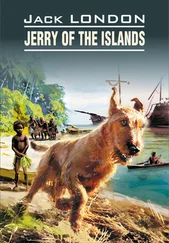‘What are they?’ I asked a bespectacled student with wire-wool hair, looking on imperturbably as she tucked into her ham and cheese sandwich.
‘Trampled cows,’ she replied, somewhat annoyed at having to gulp down her bite.
‘Who trampled them?’
‘The other cows. In the truck. They’re no good for eating now … so they bring them here.’
‘Why don’t they just put them out of their misery?’
Her mouth being once again full of sandwich, she confined herself to pointing. I followed the line of her finger. In a roofed amphitheatre, exercise books in hand, a large group of students were watching a farmhand (the same one that had passed me on horseback) handling a third trampled cow. As I approached, I watched him stick his sheath knife beneath its spinal column, level with its forelegs, and work it back and forth until he’d opened a button-hole, then repeat the process level with the hindquarters. He and another farmhand in a beret unfastened two hooks attached by heavy chains to the steel roof-joist and ran them through the button-holes. After making sure the hooks were fast, they began to hoist the animal up by pulleys. As the whole of its body left the ground something appalling happened: the animal, which looked dead, opened its eyes and let out a ghastly low, and from the steps of the amphitheatre came a hail of exercise books hitting the floor and the shrieks of male and female students fleeing the scene. The lecturer, who’d been checking his notes leaning against one of the rusting columns, made a gesture of annoyance to the older gaucho, who lifted the beast’s head up by the muzzle and cleanly sliced open its jugular. A steaming, red cascade spurted towards the cement floor, spattering several of the students, and in a matter of minutes the place looked as if it had been hosed down with blood. The students crowded together on the highest steps to escape the flood.
I headed for the casemate in disgust, but couldn’t go in straightaway because they were unloading a lorry in one of the fenced yards. Standing on the roof, a fat man in blue overalls and an old man in a frayed pullover were shoving in sticks with nooses and, like some fairground game, fishing out dogs one by one: the largest by the scruffs of their necks, kicking and trying desperately to bite the thing that was choking them; the smallest sometimes by one leg, as they howled with the pain, and one even by the tail. As soon as they recovered a little, the animals threw themselves at the wire mesh trying to push their paws and muzzles through; some growled at me as I approached, others poked their tongues through their half-closed muzzles and tried to lick my hand. They must have done a dozen when a shrimp in a white coat and round glasses, with a long nose and shock of grey hair, appeared at the door and shouted in a falsetto:
‘No more dogs! Cats! I told you to bring cats! Haven’t you got any cats there?’
The two men looked at each other and grinned.
‘There was just one, yeah, but we couldn’t get it off the roof of the lorry,’ said the old man, clawing at the air with his arms and legs to dramatise while the other man’s belly shook with laughter.
‘Find it and get those other things out of here.’
‘What do you want us to do with them, Prof?’
‘Take them down to anatomy: they always come in handy there,’ he said and disappeared.
Supposing I’d found my man, I followed him through a door that led into a shadowy chamber filled with the smell of cat piss. The room was mainly occupied by fruit crates doctored with chicken-wire to make cat cages, which were piled to the ceiling in towers, walls, pyramids barely separated by corridors and interstices so narrow that only the Professor could move comfortably through them.
‘Dr Gobbio, I presume. I’m from Surprise.’
‘Dr Rauss sent you, right?’
‘No, Dr Stoffa.’ My old friend Fatty from Surprise must have been as much of a doctor as I was, but the habit was catching.
‘Oh, forgive me,’ he said, adjusting his glasses. ‘Well. How can I help you?’
When I told him about the prize his eyes lit up so bright I thought his specs were going to slide down his cheeks in two thick tears of molten glass. He cleared one end of the rickety formica table, piling everything on top of the antediluvian Olivetti that threatened to snap it like an old nag’s back, pulled up a chair for me and held out three different biros to write the cheque with.
‘I’ve already told the police … two bs … no, the other cheque in my name too; I’ll save Dr Rauss the paperwork. My other guests? Let me see …’
With one salivated forefinger he leafed through a rumpled, black notebook, murmuring ‘Hm … hm …’
With nothing better to do, I let my eyes wander over another open one right under my nose:
2/5/92. Some transformations to bring about:
self-interest → self-sacrifice
individualism → obedience
nocturnality → diurnality
instinct → training
3/5/92. ‘Like cat and dog’: two antagonistic and irreconcilable principles. No compromise possible.
Opposites even in their semiology: wagging or twitching tail = happy/angry; growling/purring = angry/happy. How could they understand each other? No accident that they have, from the beginning of history, been our two most common pets. A two-sided mirror, always reflecting back at us the fatally divided image of our souls.
4/5/92. Locking up the cat a little longer each day: this is the measure of civilisation.
5/5/92. Training them to lick the hand that beats them.
9/5/92. It is impossible to completely possess a cat.
12/5/92. Adam was the dog of God; Eve, the cat of Lucifer. X vs Y. Cat eyes = snake eyes.
19/5/92. Smash the cat to smithereens and use the pieces to manufacture a dog.
21/5/92. The feline part of man: the source of all his ills.
Whoever masters it will harness an energy greater than that of the atom.
24/5/92. A country and a decade to feed my nostalgia: Germany, 1935–1945. If that had lasted, who knows where we would be now? But no, we had to go back to the baboons.
Our reading was interrupted by the fat man, who burst in with a piece of severed hosepipe in his hand and said to him:
‘You wouldn’t have a thicker one, would you eh, Prof? This one leaks all over the shop.’
‘Look over there.’
He furnished me with the names of Dr Rauss (a.k.a. Evita) and Dr Seisdedos (a.k.a. Lady Di). I was only one short now:
‘Grey, yes, with a belt. I remember him because I wondered where he’d bought it. There’s a place called “The House of a Thousand Waterproofs”, isn’t there? Or was it just a hundred?’
The cat piss had gone to my head and, outside, the city mist filled my lungs like mountain air. The fat man and the old man had finished their work. Where the lorry had been there was now a tall pyramid of dead dogs, as stiff as wooden models. The carbon monoxide had frozen their last snarls in a final group photo of their mass death. At the apex of the heap, like a cherry crowning a sundae, the two jokers had placed the cat: upside down, four stiff legs in the air, claws drawn.
To avoid the mud, I went back via the side of the shed where the cow was hanging — at least what was left of it once its hide had been removed, its organs emptied, its musculature shredded. In a hurry to get out of there, knowing I should have taken another route, I stepped in a blood clot and found myself flailing, clutching and kicking at the air, as if by grabbing hold of it I could prevent myself falling into the pool of blood. I flew up so high that, while I was up there, I still had time to think ‘This can’t be happening to me. I don’t deserve it,’ and landed on my right foot, left hand, left foot and right hand in that order, hanging there with my face to the sky as if suspended by the belt buckle on one of those hooks. I managed to get up without touching the foul ground with anything more than a sleeve and the edge of my jacket, and, swearing like a truck driver, almost weeping with rage, I bent down to pick up a couple of used paper napkins off the grass and, rubbing my hands in disgust, strode furiously towards the exit.
Читать дальше











